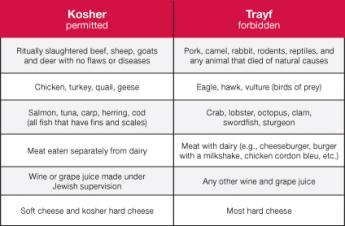Related Topics
Religious Philadelphia
William Penn wanted a colony with religious freedom. A considerable number, if not the majority, of American religious denominations were founded in this city. The main misconception about religious Philadelphia is that it is Quaker-dominated. But the broader misconception is that it is not Quaker-dominated.
Food and Drink in Philadelphia
A flowing abundance of food sources made Philadelphia the capital of food and drink, right from earliest times.
Science
Science
Architecture in Philadelphia
Originating in a limitless forest, wooden structures became a "Red City" of brick after a few fires. Then a succession of gifted architects shaped the city as Greek Revival, then French. Modern architecture now responds as much to population sociology as artistic genius. Take a look at the current "green building" movement.

Cultural
Culture and Traditions (2)
Customs, Culture and Traditions (2)
.
Right Angle Club 2010
2010 is coming to a close, a lame-duck session is upon us, and probably after that will come two years of gridlock. But the Philadelphia Men's Club called the Right Angle, keeps right on talking about the current scene. A few of these current contents relate to speeches given elsewhere.
What's Different About Kosher ?

|
| Kosher Foods |
About half of the labeled food products in a typical supermarket are designated Kosher, displaying a "K". That seems remarkable when only about 1 million American Jews are observant or Orthodox, thus eating only Kosher food for religious reasons. So, the Chemical Heritage Foundation recently decided it would be interesting to examine the definition and details of the Kosher designation, which presumably has some chemical basis. The CHF was right about the interest in the topic; attendance at the auditorium was packed. The following is entirely derived from what was discussed there.

|
| Rabbi |
One might have carelessly supposed that a religious designation of food products would have an exclusively religious basis, probably related to preparing the product according to a religiously defined method or ceremony. That's essentially true, but what is unexpected is that the choice of food to be included or excluded must obey a strict and extensive set of rules. The basis for the rules is found in the Old Testament, but specifics have been evolved by designated Rabbis, rather like the way the interpretation of the U. S. Constitution is left to the U.S. Supreme Court, and has considerably evolved in the process. An examination of these evolved rules is what leads other denominations of Jews to avoid the issue or even to decline to endorse it. That makes it rather awkward for chemists to understand the Kosher process in strictly chemical terms. For a perhaps extreme example, hard cheese but not soft cheese is strictly forbidden within Kosher rules. That's because the rules state that eating meat is fine, eating cheese is fine, but six hours must elapse between eating either one. What's forbidden, then, is a mixture of meat and dairy. Hard cheese is produced by exposing soft cheese to rennin, or rennet. Rennin is produced from the stomach of cows, so the interaction is deemed to be simultaneous rather than separated by more than six hours. It certainly is true that a chemical reaction between two ingredients is difficult to imagine if it is anything but a simultaneous contact between the two. So, chemists would have to agree that hard cheese involves less than a six-hour separation between meat and dairy. But most chemists would regard this interpretation to be somewhat strained; to punish people for disregarding it seems excessive. Whatever disagreement there may be is not based on the facts, but on the importance to be attached to them.
Similarly, most chemists would resist the idea that a chemical product derived from two different sources differs in any way at all. The most important example of this issue is glycerine, a common food additive. A fat consists of three fatty acids attached to glycerin; pure glycerin is produced by separating the fatty acids from it, and in any event, the fatty acids of pigs and cows are also chemically identical, at least in the view of chemists. Glycerin derived from pig fat thus seems to chemists to differ in no meaningful way at all from glycerine derived from cow fat. To those in charge of Kosher rule making, however, the difference in the source is vital, needing to be searched out in minute detail. Since Coca-Cola contains traces of glycerin, and the Coca-Cola manufacturer wished to have a Kosher label, the company somehow had to satisfy the Rabbinical demand that the sources and processing steps of the glycerin be identified in minute detail. Coca-Cola contains a secret ingredient which some believe is essential for the true Coke taste; the company was not going to reveal its processes. Somehow, this quarrel was resolved privately, although it is not easy for outsiders to imagine how it could be.
And so on. There may, of course, exist many Kosher rules which make perfect sense; the speakers did not go into that. What remains of general interest is the question why so many non-Orthodox Jews, in fact so many people who are not Jewish in any sense, insist on eating only food with a Kosher label. At the conference, it was explained that many people who have been told they are lactose-intolerant, or allergic to some protein, become fanatic in their fear of contact with such chemicals. That is, as a matter of fact, a common observation in many doctors' offices. These people seem to have developed the idea that they can trust the Orthodox rabbis to be even more fanatic than they are if anything more rigid and unyielding in their pursuit of particular exclusions. While that has driven many Jews away from Orthodoxy into other religious directions, it has served to reassure the health fanatics. The food manufacturers don't particularly care about the social features; if that "K" sells the product, they want to have it.
On hearing of these issues, one of my Jewish friends suggested an extension to Jewish kitchens. It was his view that if a real estate agent shows you a house with two or more ovens, two or more stoves, or even two or more kitchens, it probably had a Jewish owner at some time in the past. Multiple kitchen arrangements are much less likely to reflect an owner who likes to entertain a lot, than an owner who has been told of the six-hour mandatory wait between eating both meat and dairy, and has persuaded himself this rule extends to the separation of stoves. There's no great harm in any of these beliefs, of course, unless it is somehow represented that they improve the health of the believer, which would drag a highly reluctant Food and Drug Commissioner into a dispute he can't win, no matter how he rules.
Whatever the complete truth of all these suppositions, they lead the casual reader to let his thoughts meander. There's a similarity here to a great many other prohibitions and adherence, tenaciously adhered to, resulting in elections won and lost, provoking scorn heaped on non-believers. And even to totally unrelated legislation getting derailed because legislative representatives were unwise enough to take a stand on this one. Pro or con.
Originally published: Friday, March 19, 2010; most-recently modified: Wednesday, August 07, 2019